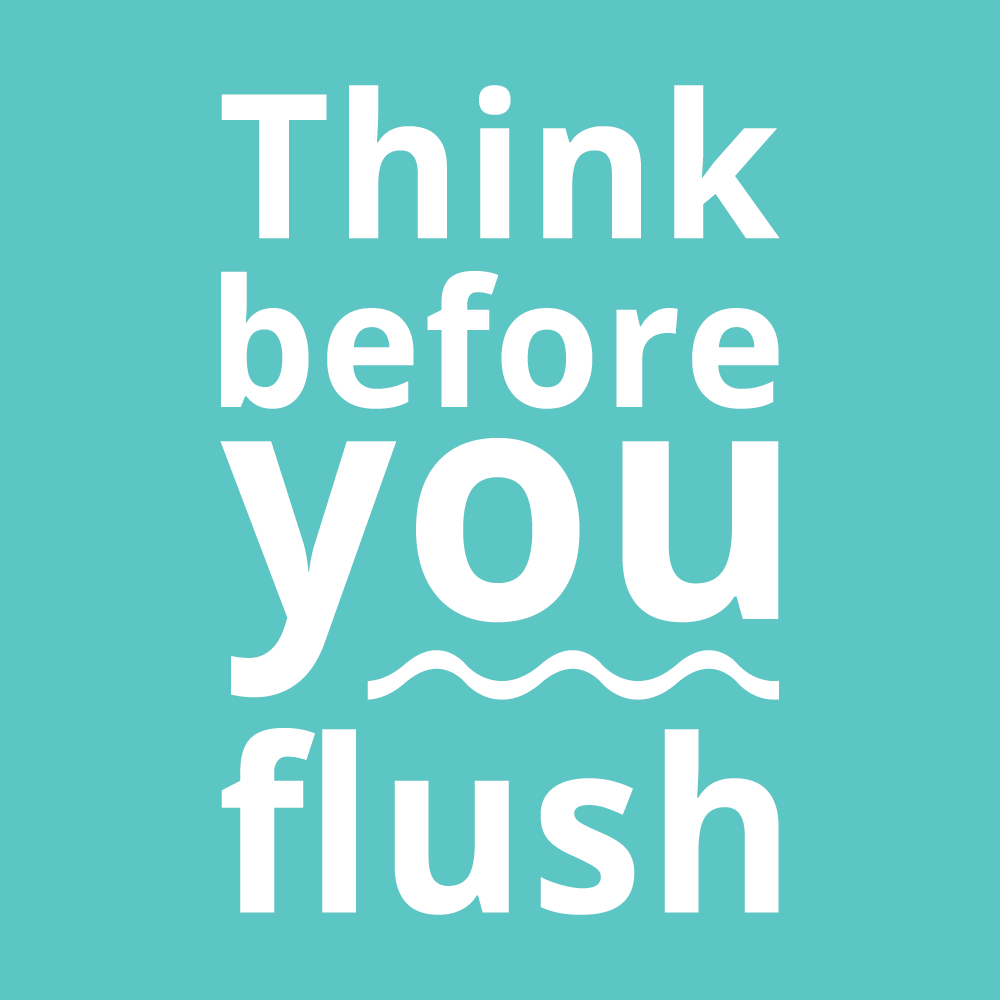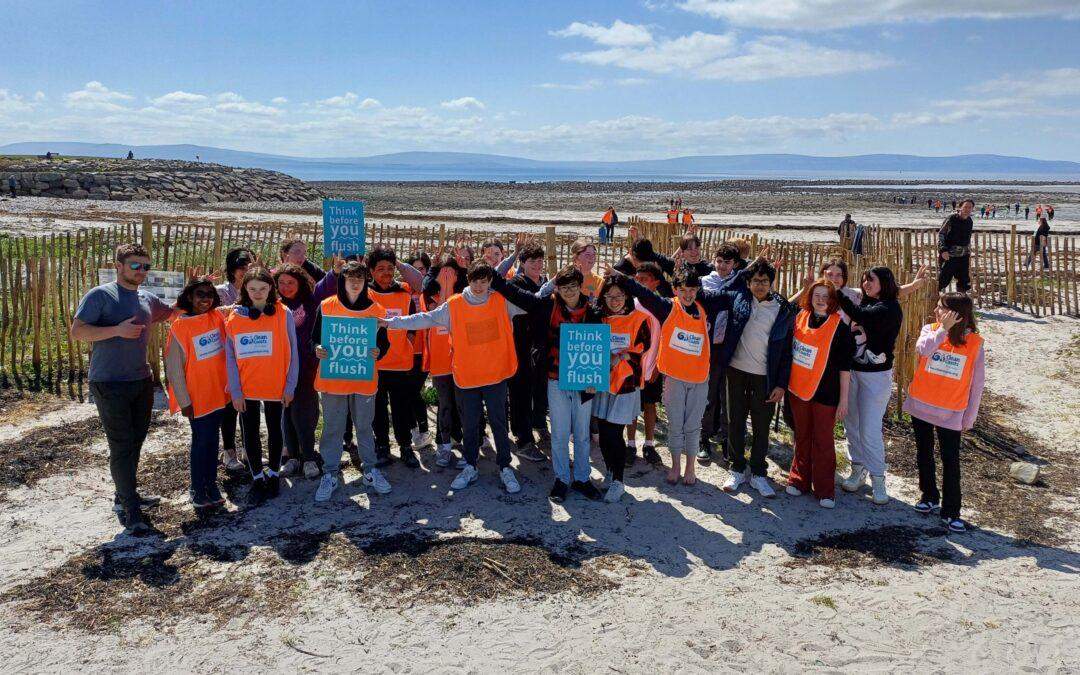Last Weekend Galway Educate Together National School, hosted a clean-up on Grattan Beach with ‘Think Before You Flush’, a campaign operated by Clean Coasts in partnership with Uisce Éireann. The purpose of the event was to inform the students on which items should and should not be flushed down the toilet, helping to protect their local environment and the coastal amenities of Salthill and Galway.
The Think Before You Flush campaign works with local communities across Ireland and Galway to raise awareness on the issues of flushing unsuitable items, also known as the ‘Dirty Dozen’, down the toilet and highlights the consequences of doing so. These include blockages in our wastewater network and treatment plants, sewage overflows and sewage-related litter ending up on our beaches and in our natural environment. The campaign message is simple. Only flush the 3Ps (pee, poo, and paper) down the toilet – everything else goes in the bin.
While people appreciate the convenience of disposable wet wipes, facial pads, and dental floss many are unaware of the problems associated with these items when inappropriately flushed down the toilet. Research has found that just over one in five adults regularly admit to flushing items that are known to cause blockages and can have detrimental effects on the wastewater network and the marine environment. Unlike toilet paper, which is designed to disintegrate quickly in our pipes and sewage systems, these other items do not break down easily.
Galway Educate Together worked alongside the Think Before You Flush campaign to remove litter and sewage-related litter items from Grattan Beach. Particular attention was given to finding and identifying items from the Dirty Dozen. Ollie O’ Flaherty from Clean Coasts said: “through education and awareness, the Think Before You Flush campaign aims to prevent items like wipes, cotton bud sticks and sanitary items ending up on Ireland’s shores. One of the strengths of the campaign is working with schools, such as Galway Educate Together, who are encouraging behavioural change in this area. Research indicates that attitudes and flushing behaviours are changing for the better but there is still work to be done.”

